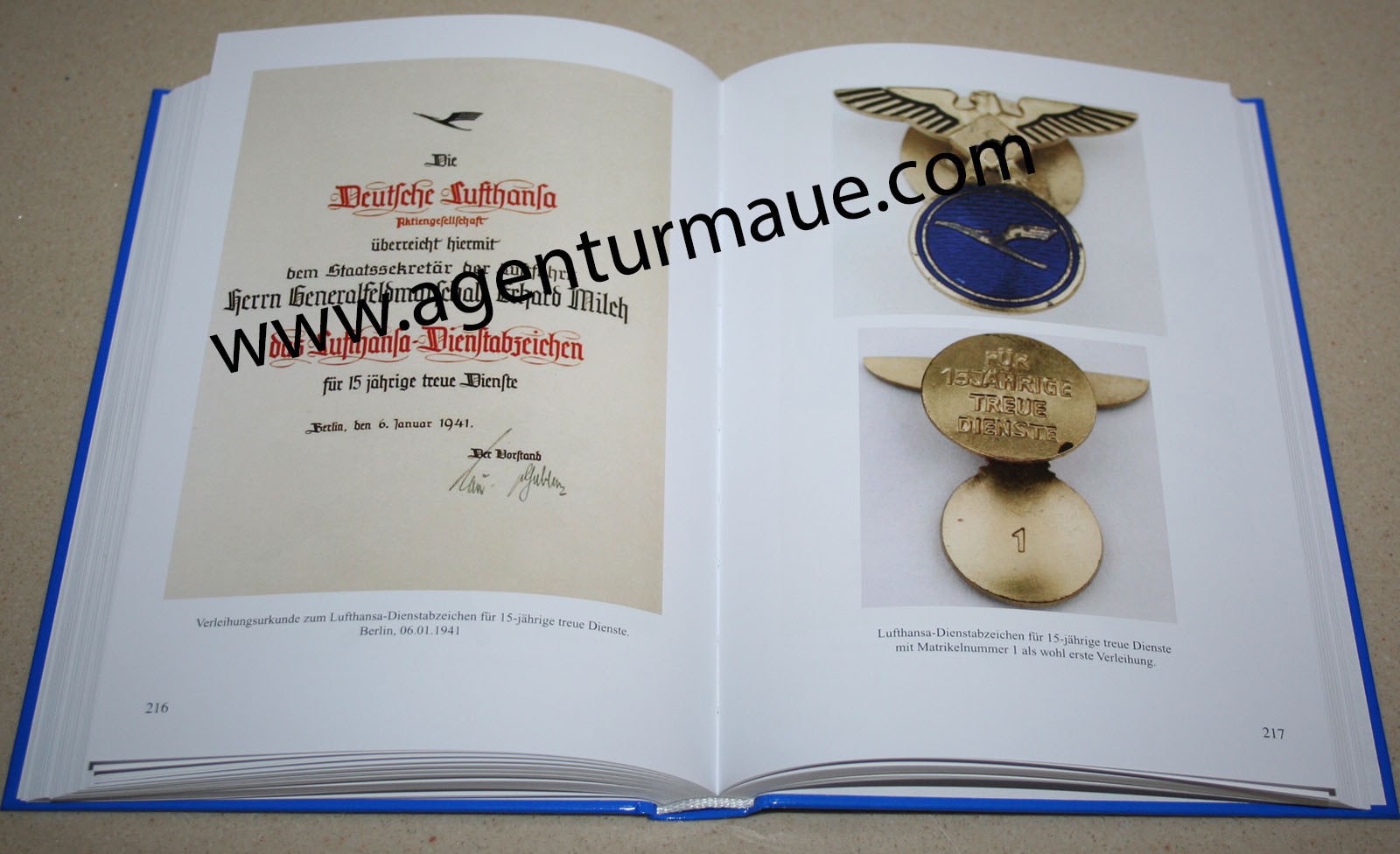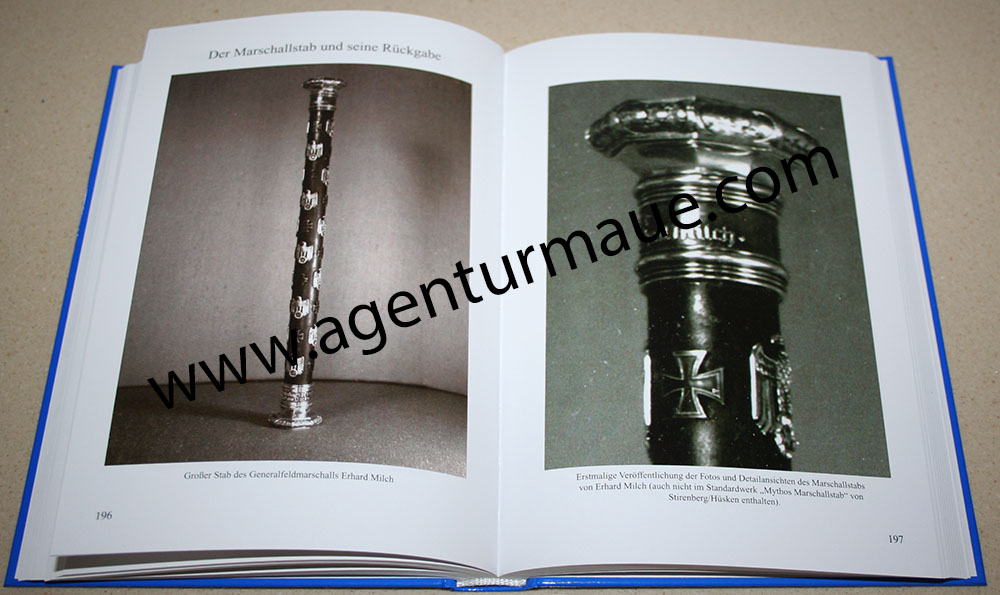 |
The Estate of
General Field Marshal
Erhard Milch
To this book |
On 30th December 1971 a unique event took place in Lüneburg stemming from the strange consequences of the Second World War: the return of a marshal's baton. The baton and other personal valuables held by the Scottish foundation, The McRobert Trust had been stolen by British soldiers in April 1945 following an arrest. The German Armed Forces were asked by their tradition-conscious British friends to consider initiating similar acts of repatriation in the spirit of reconciliation. And that without ceremony because it simply concerned the “return of personal property”. Just four weeks later on 25th January 1972, an individual in Wuppertal-Barmen died and was buried, at his express wish, in Lüneburg.
He had survived four plane crashes, two serious car accidents, a train derailment and the judgements of the victorious powers, sentencing him to life imprisonment.
 |
I could not have known in the late 1990s when a customer entered my shop at 20 Lünertorstrasse, Lüneburg, that I would acquire, in 2001, one of the greatest military treasures since the war. It was in a satellite town of Lüneburg and concerned the preservation of an historic document by the niece of the former president of German Lufthansa, the State Secretary in the Ministry of Aviation, Inspector General of the Air Force, General of Aircraft Production,General Field Marshal Erhard Alfred Richard Oskar Milch. |
Almost everything has been discussed about the co-founder of Lufthansa and creator of the German Air Force from 1933, apart from his not unequivocally proven pedigree.
If one knew that Erhard Milch gave only evasive answers about this at the Nuremberg Trials, for me it was not surprising, when looking through his personal effects, to find only a maternal family tree. Interestingly, however, a letter from the leader of the Reich, SS Heinrich Himmler who states to the brother-in-law of Erhard Milch, a Fritz Herrmann (Chief of Hagen and Gdansk police, high-ranking SS leader and, later, district President of Lüneburg) “…with the ancestry of your wife (Herta Herrmann, née Milch)) everything is OK”!
Further evidence of private letters, wich are published here for the first time, from early (in this case occupied since 1933) ancestry search.
In this document you will find pictures and descriptions of the estate. Besides medals, decorations, certificates, personal effects, unpublished photographs and miscellany, there are also personal papers, correspondence and evaluations of the period 1907-1945 and thereafter. Many previously accepted facts and figures should therefore be corrected or added to. |
 |
With this book I did not wish to glorify, but merely to provide those interested with an insight into the life and thoughts of a man who was dedicated to aviation, both civil and military. A man who flew high, knowing that there are some rough landings.
In this context, reference is made to "The Tragedy of the German Air Force" by David Irving (Ullstein Verlag, Frankfurt / Berlin 1970). But the critical counterpart, the almost forgotten "The tragedy of the German Air Force?" virtually an anti-Milch/Irving book (Vohwinkel Verlag, Neckargemünd 1970) by retired Air General Theo Osterkamp, should be specifically mentioned here. Osterkamp lived in Lüneburg in the post-war years.
Judgement at Nuremberg has, however, left a stigma, that precludes the General Field Marshal from the hierarchy of other deserving personalities in the aviation industry.
My personal conclusion: Erhard Milch, an airline manager (that’s what we would say these days), into whose hand the baton was pressed.
Michael Maué
Lüneburg, December 2011, marking the 40th anniversary of the return of the marshal’s baton.
|

